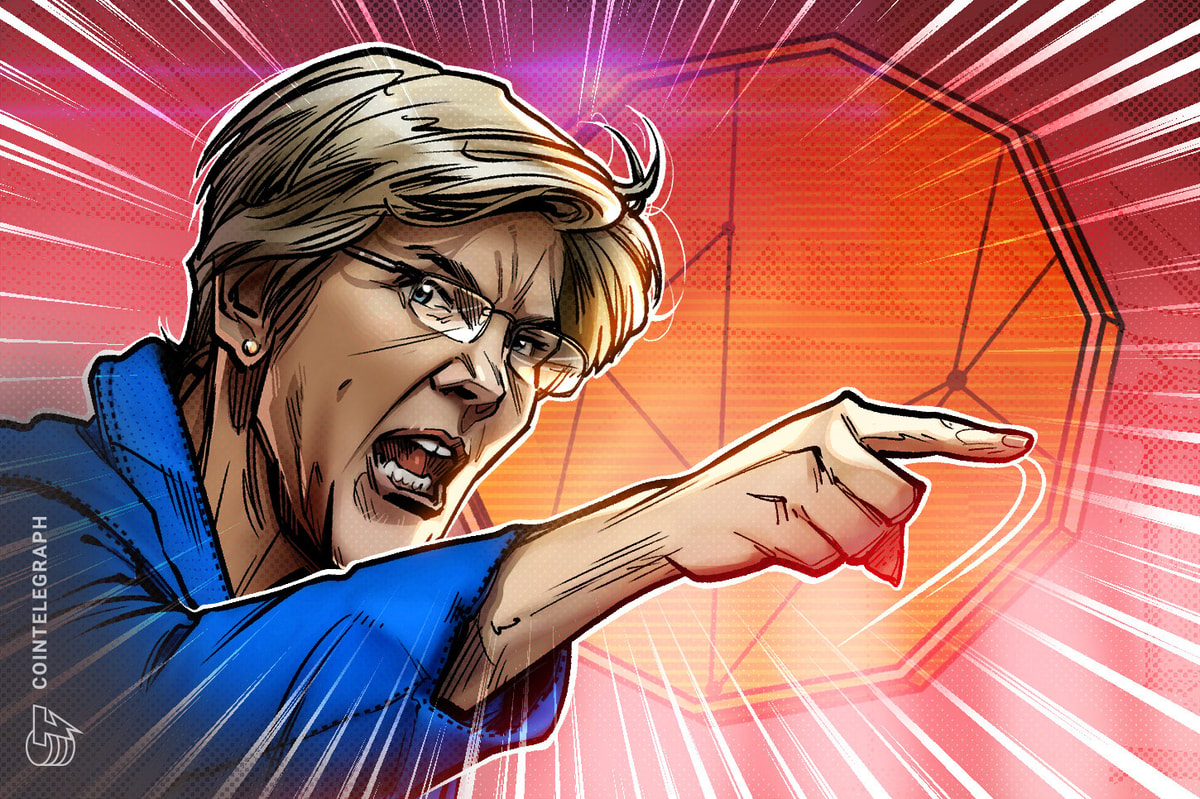US Senator Elizabeth Warren has penned an open letter to US President-elect Donald Trump’s pick to lead the US Treasury, urging him to evaluate stricter regulations and enforcement measures for digital assets if he takes office.
In the Jan. 12 open letter, Warren asked Treasury Secretary-designate Scott Bessent if the Treasury Department should have more power to sanction the crypto sector.
“Should AML/CFT and sanctions programs include risk-based provisions reasonably designed to prevent money laundering or terrorist financing involving digital assets,” wrote Warren, who is soon to be the top Democrat on the Senate Banking, Housing and Urban Affairs Committee.
According to Warren, bad actors use cryptocurrency for criminal activity like money laundering and sanctions evasion and to finance actions such as North Korea’s nuclear program and ransomware attacks.
“Bad actors are also increasingly turning to cryptocurrency to enable money laundering, sanctions evasion, and to finance major national security threats, such as Russia’s invasion of Ukraine, North Korea’s nuclear program, China’s sale of weapons parts to sanctioned nations, and ransomware attacks,” Warren said.
She also asked Bessent whether the department’s powers regarding Anti-Money Laundering and Counter-Terrorism Financing should include a secondary sanctions tool that would allow it to “sever fintech and crypto operators from US relationships.”
Warren wrote a 31-page letter to the lead candidate for Treasury Secretary, asking dozens of questions that she wants answers to at his confirmation hearing on Jan. 16. Source: Elizabeth Warren
Warren has also asked whether the Office of Foreign Assets Control should have jurisdiction over stablecoins and if Congress should extend Treasury’s Bank Secrecy Act authority to include overseas companies connected to US markets and clients.
The Bank Secrecy Act requires financial institutions to maintain operational records and file reports with the US Department of the Treasury.
Under current regulations, US crypto exchanges, wallet providers and other service providers must comply with certain BSA requirements if they are engaged in activities like trading, transferring, or storing digital assets.
Warren has asked that Bessent be prepared to discuss these questions at his confirmation hearing on Jan. 16.
Related: Foreign crypto miners could be spying on US bases: Elizabeth Warren
In a Jan. 13 post to X, Alexander Grieve, vice president of government affairs at crypto investment firm Paradigm, said that while all the “questions seem entirely reasonable to ask,” Grieve said it could be masking a broader agenda from Warren.
“What they mask is a casus belli for Warren to argue for significant AML reg expansion over neutral crypto technology providers,” he said.
“As an opening salvo as Ranking Member, this is a pretty robust one. Expect Sen. Warren to be very active in the minority,” Grieve added.
Source: Alexander Grieve
Senator Warren has been actively calling for stringent regulations for the crypto industry.
In 2022 and again in 2023, she introduced the Digital Asset Anti-Money Laundering Act to bring the crypto industry to heel under existing AML and CTF frameworks.
The bill was blasted by US-based crypto advocacy group the Chamber of Digital Commerce and 80 former military and national security officials, who said it could hinder law enforcement and increase national security concerns by driving the digital asset industry overseas.
Warren’s open letter comes just under a week before Trump’s inauguration on Jan. 20, when he is expected to follow through on his crypto-friendly promises made on the campaign trail last year.
Hundreds of pro-crypto candidates have also won seats in Congress, and industry leaders have suggested that the US government might become the most pro-crypto in history.
Magazine: Cypherpunk AI: Guide to uncensored, unbiased, anonymous AI in 2025

Leave a Reply